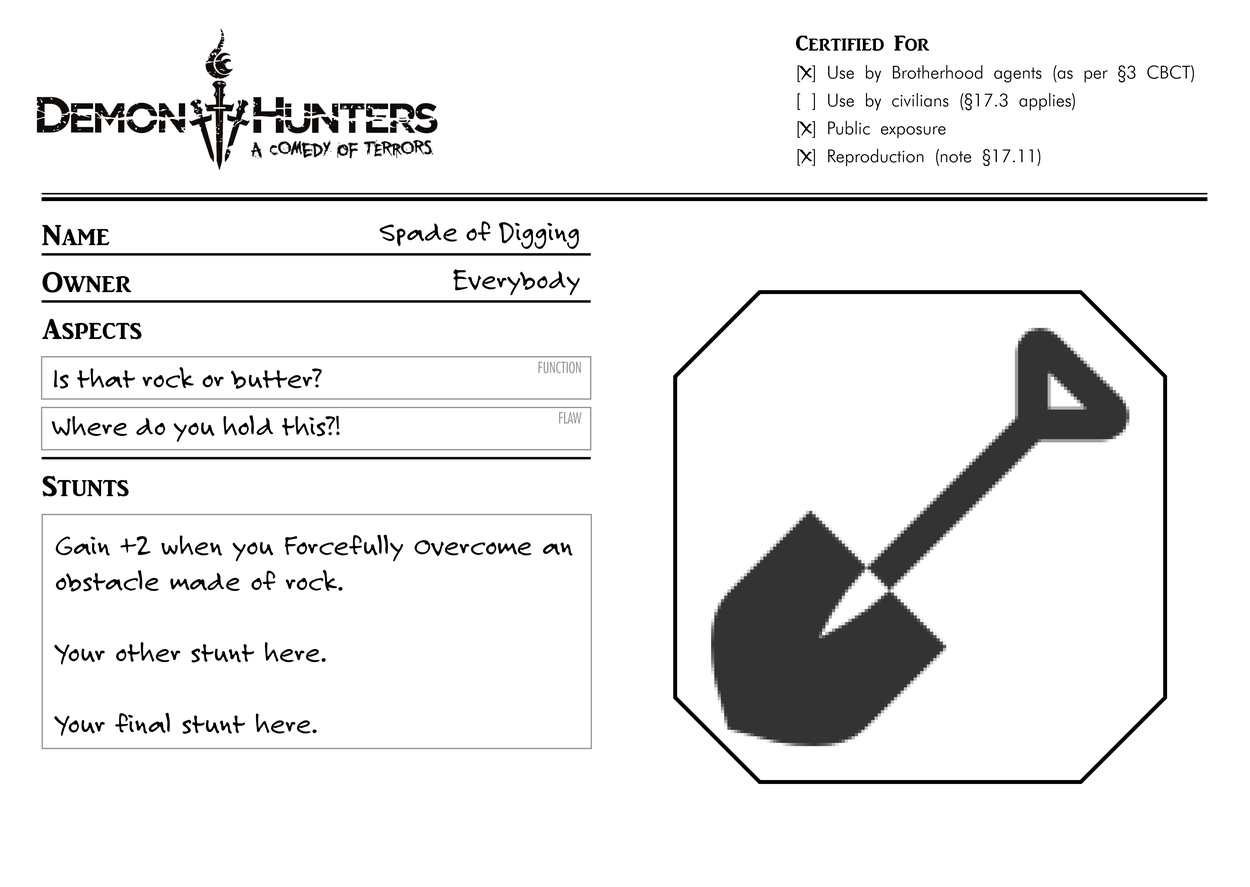Supplements for Demon Hunters
For a long time, I have been unsatisfied with the state of game aids in many RPGs. By “game aid” I mean physical tokens that help with or drive the mechanics of the game at the table. Most games have character sheets – beyond that, publishers usually follow one of three approaches.
- No game aids – not helpful, obviously.
- Form-fillable PDFs for free download – cumbersome and awful to manage.
- Ready-made character sheets, card decks, etc. – pretty, but no flexibility.
One notable exception is the Numenera Card Creator by Monte Cook Games and DriveThruRPG. Good job!
Of course, players will come up with their own aids: there are fan-made spell and maneuver cards for DSA 4.1. I drafted a character state sheet for the same game1. For Shadowrun, I created cards for weapons, and Numenera cards for the thus named game.
Some of these were drawn by hand, but I usually used LaTeX (after initial disappointments with word processors); that is, TikZ does most of the heavy lifting. For a long time, I wanted to try something new: starting with a clean data representation, automatically generate pretty PDFs. Last year, I implemented a prototype for the Demon Hunters game I was running.
You start with a JSON of a character, chapter or item. For example:
{
"name" : "Spade of Digging",
"image" : "spade.png",
"owner" : "Everybody",
"aspects" : {
"function" : "Is that rock or butter?",
"flaw" : "Where do you hold this?!"
},
"stunts" : [
"Gain **+2** when you **Forcefully** **Overcome** an obstacle made of rock.",
"Your other stunt here.",
"Your final stunt here."
],
"certified" : {
"use" : true,
"civilians" : false,
"public" : true,
"reproduction" : true
}
}
Being a techy myself I may be slightly biased, but I think this is a much clearer and more maintainable way of saving items (or characters, or …) than form-fillable PDFs or similar.
Some Ruby, erb and LaTeX later, we get something like this:

I quite like how this turned out. And that is for a Fate-based system; the effect is probably a lot more impressive for more crunchy systems! Combine a tool like this with an item database and a random number generator – it was never easier to create the next encounter or crate of loot!
You can find the full tool and more examples on Github.
Footnotes
-
An A4 sheet was barely enough to fit everything. Man, that game was crunchy! ↩
